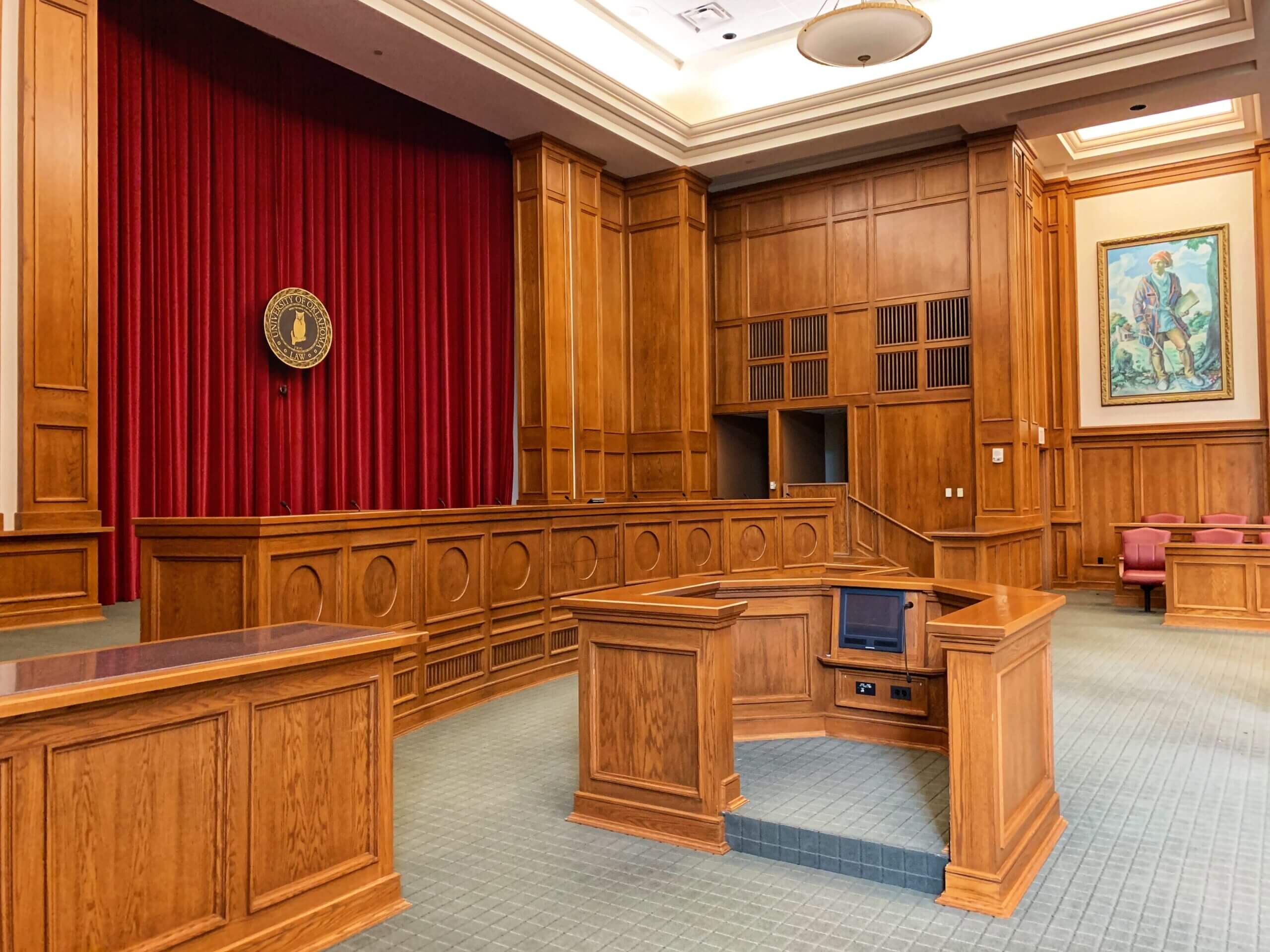DC Truck Accident Trial Process
The DC truck accident trial process can be tricky to navigate without assistance from a skilled attorney. As you will soon learn, the trial process has many components once you get into the trial. But even getting into court can take upwards of one year in Washington, D.C., for a truck accident. The Washington, D.C., court system is typically slower than neighboring states like Maryland or Virginia. Its inefficiency is because Congress requires an act to amend the process. And unfortunately, Congress is not known to make many decisions quickly. Nor is there much representation for the interests of Washington, D.C., in Congress. Thus, this is the system we have. Accordingly, based on the rules of civil procedure, we will file a suit in Maryland if possible.
There are two ways of having your DC truck accident trial in Maryland instead of DC. First, if the defendant resides in Maryland. We can then file in the county where the defendant resides despite the accident having occurred in the District. The second way is if the accident happened in Maryland. Then, even if the defendant lives in DC, we may still file in the county where the accident occurred. If neither of these options is possible, we will file suit in DC to fight for the compensation you deserve for your injuries.
Filing a Truck Accident Lawsuit
We must meticulously collect the requisite evidence before filing a truck accident lawsuit. We must have your case ready to go. Additionally, we must have our witnesses in order. We need to have the defendant’s correct contact information. Without the defendant’s information, we will have no one to serve process to, which is required in Washington, D.C.
Pre-Trial Procedures
A countless array of pretrial procedures might arise in a DC truck accident trial process. While you do not need to be aware of each, below is a list of the most common procedures you may see.
- Complaint and summons. This is how a person knows they are being sued. A summons is an official notice informing the defendant of the lawsuit. It also tells the defendant of any time frames that may be applicable for which the defendant must respond. While the summons informs the defendant of the lawsuit, the complaint initiates the suit. A proper complaint outlines the lawsuit’s merits, the allegations against the defendant, and the damages sought. While plenty more may be included, this provides a basic understanding of the start of the DC truck accident trial process.
- Discovery process. The discovery process is a complex part of the DC truck accident trial process. The purpose of the discovery process in any lawsuit is to ensure there are no surprises for either party so that each party may be prepared and receive a fair trial. On the other hand, a weaker law firm may get buried during the discovery process under thousands of documents that must be reviewed. The most common discovery methods include interrogatories, depositions, requests for production, and requests for admissions.
- Motions. Either side may file many motions before, during, or after a DC truck accident trial. Common motions include a motion to dismiss by the defendant, a motion for summary judgment or pre-trial motions to exclude evidence.
Settlement Negotiations
If you are in the DC truck accident trial process, then it is highly probable that the settlement negotiations failed. However, it is still worth noting because it is a critical part of the case leading up to the trial. There are two reasons why settlement negotiations fail. The first reason is the defense team denies liability on the part of their insured. The plaintiff’s attorney disagrees and files suit. The second scenario is if there is a disagreement on the case’s value. To start a negotiation, there is almost always some disagreement regarding a case’s value. However, the two parties can typically resolve this and meet somewhere in the middle, landing on what the case is worth.
The plaintiff will file suit if an amicable resolution cannot be reached for either of these reasons.
The Trial

Jury Selection
This process is known as voir dire. In Washington, D.C., both parties get a certain number of jurors they may remove from the jury pool without listing a reason. The only rule is that the reason must not be unconstitutional. However, the attorney will likely never say the reason, so whether it is unconstitutional remains unknown.
Additionally, either side gets unlimited removals of potential jurors for cause. A juror may be removed from the pool for cause if they are deemed unable to be impartial.
Opening Statements
The opening statement is one of the few times throughout the DC truck accident trial process where the attorney has the freedom to make a compelling case without using witnesses or evidence. It provides the jury and judge with an outline of the forthcoming case. The plaintiff will almost always go first, followed by the defense. These are factual statements devoid of argument.
Presentation of Evidence
This is the meat of the trial. As the plaintiff (victim) has the burden of proof, we go first in the DC truck accident trial process. We may examine medical records, expert testimony, eyewitnesses, photographs, dash camera footage, and anything else deemed relevant and not outweighed by countervailing considerations. In many cases, eyewitness testimony accounts for most of the evidence at trial. While not tangible the way a photograph is, it is just as legally effective.
Closing Arguments
Closing arguments in a civil trial allow each attorney one last chance to persuade the jury to adopt their position. The rules for closing arguments are similar to those for opening statements. No new evidence may be introduced at this stage.
Jury Deliberation
During the jury deliberation stage, the jury will provide instructions on analyzing the evidence and producing a verdict. Jury instructions are a critical component of a trial. The jurors then deliberate on the credibility of the witnesses and the evidence presented to them and decide on the rule of law based on the instructions they were provided.
Resolution
Once the jury foreperson delivers the verdict to the court, the judge affirms it, deciding a judgment. Unlike a settlement, a judgment may be appealed.
Appeals Process
This is perhaps one of the most unfortunate parts of filing suit on a high-value truck accident case. When you settle a case, it is final. However, a judgment is appealable. For example, the defense may file a motion for a judgment notwithstanding the verdict. This calls on the appellate court to hold that the jury did not have a legal basis for their verdict and to submit a new judgment despite the jury’s verdict. An appeal must be based on a mistake of law, not fact. An appellate court does not have a fact-finder or jury like a trial court does. The appellate court should only reverse a lower court ruling if they determine the trial judge misinterpreted or materially misapplied the law.
Speak With an Attorney
Gelb & Gelb, P.C. handles every aspect of your DC truck accident trial process. Our attorneys have handled over 10,000 accident cases since our founding in 1954. We continue to strive to win compensation for every client, providing experience, responsiveness, and an aggressive pursuit of justice for our clients.
If you have any questions about the trial process or believe you have a case, call our office today at (202) 331-7227 for a free consultation.
![dc truck accident lawyer]()
This page has been reviewed by the legal team at Gelb & Gelb, P.C.
 N/a
N/a













